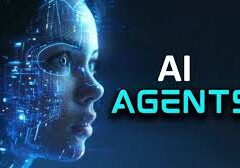The concept of Artificial Intelligence (AI) has long been a fascination for storytellers and sci-fi enthusiasts. However, for a considerable period, most individuals didn’t give AI much serious consideration, perceiving it as a distant futuristic sci-fi possibility. Nevertheless, researchers and computer scientists have been actively working to transform the dream of AI into a tangible reality, leading some to insist that we have already entered the Age of AI. The AI Fundamentals explained.
While the extent of AI’s integration into our daily lives remains uncertain, it is evident that meaningful conversations about AI require a shared vocabulary and a solid foundation of core concepts. Presently, asking ten people to define artificial intelligence is likely to yield ten different answers. This insight attempts to establish a common understanding by exploring AI’s current capabilities and digging into the methodologies employed by computer scientists in creating remarkable AI systems.
AI Fundamentals
Defining AI proves challenging due to distorted perceptions influenced by science fiction narratives portraying AI as a potentially malevolent force. Additionally, our tendency to benchmark AI against human intelligence contributes to this challenge. And I don’t want AI to be able to write a blog post as well as me!
Acknowledging the vast spectrum of intelligence in the animal kingdom, as well as the diversity in human intelligence, prompts a need to view artificial intelligence through a similar lens. As humans we may think we are a lot smarter than a bird. But I don’t know how to fly, do you?
AI Capabilities
Recognizing specific AI capabilities tailored to distinct tasks is crucial, dispelling the notion of a universally proficient AI, known as general AI, which remains a distant goal.
AI currently exists in specialized forms, each excelling at particular jobs. Key AI capabilities fall into several categories:
- Numeric Predictions: AI adeptly predicts numeric values, offering insights into diverse scenarios such as customer subscription renewals, medical risk assessments, or power grid demand forecasts. These predictions, often represented as values between 0 and 1, influence pricing strategies and impact various aspects of consumer experiences.
- Classifications: AI’s ability to classify data is valuable in scenarios like identifying fraudulent transactions, diagnosing illnesses, or recognizing toxic comments on social media platforms. While AI classifiers often match or surpass human capabilities, they remain task-specific.
- Robotic Navigation: AI excels in navigating dynamic environments, exemplified by autonomous driving technologies. AI-powered cars demonstrate adaptability to changing road conditions, influencing applications in optimizing supply chains and enhancing robotic functionalities in diverse scenarios. But does AI have the ability to in a life or death situation choose between hitting a fire hydrant and a baby?
- Language Processing: Natural language processing (NLP) emerges as a pivotal AI capability, demonstrated by AI entities like ChatGPT, which comprehend and respond to human language effectively. NLP enables tasks such as language translation, document summarization, and contributes significantly to generative AI.
It’s safe to say, artificial intelligence encompasses computer abilities associated with human intuition, inference, and reasoning. Presently, AI skills are highly specialized, covering categories like numeric predictions and language processing. The evolving landscape of AI offers a glimpse into the transformative potential of this technology, emphasizing its current application in specific domains.
🔔🔔 Follow us on LinkedIn 🔔🔔












